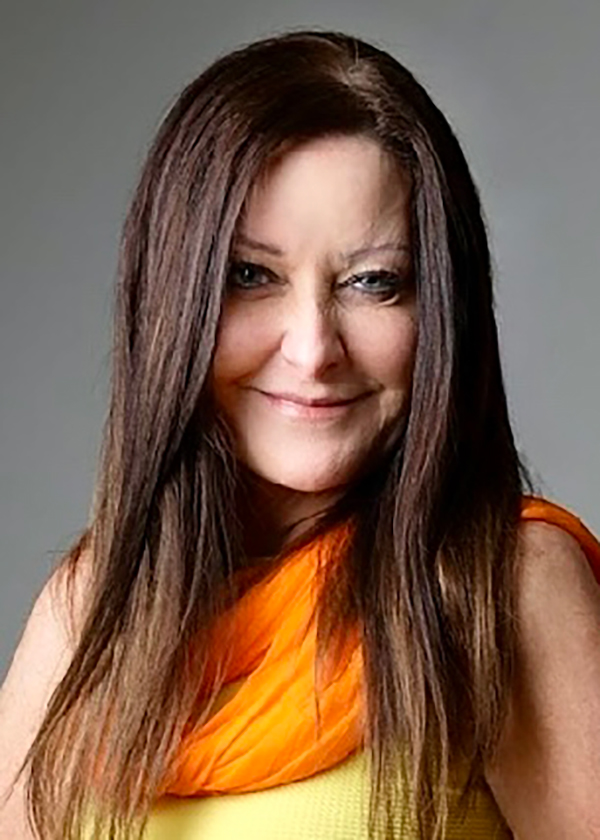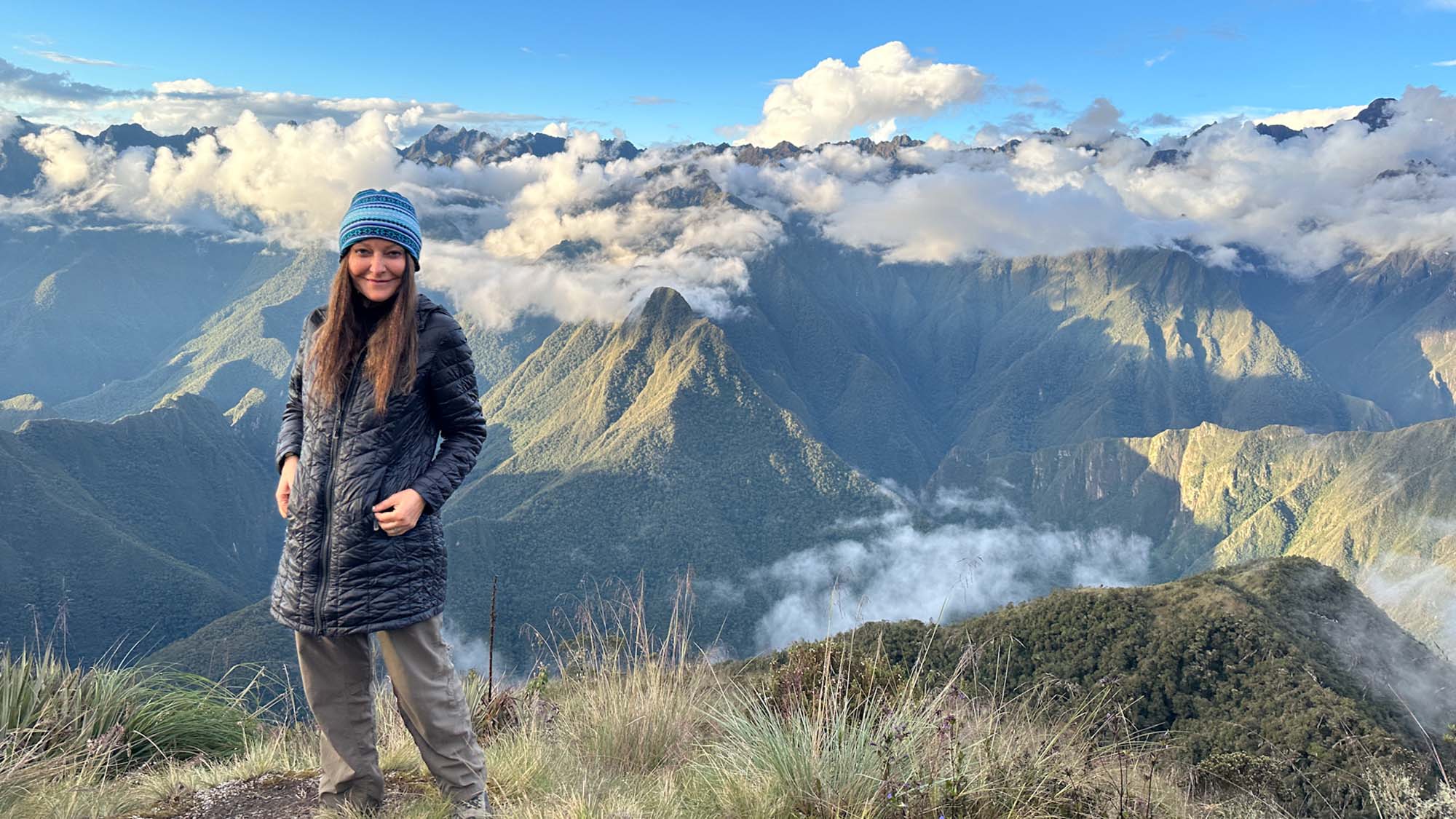Walking as a Way of Knowing: A Conversation with Professor Melissa Fitch
Fall 2025

This fall, the Humanities Seminars Program is delighted to welcome back University Distinguished Professor Melissa Fitch for a brand-new course, The Road is Made Upon Walking: Travels in the Luso-Hispanic World, beginning October 16. Drawing on her global pilgrimages and a lifetime of teaching, Professor Fitch offers students not just a class, but a journey into literature, film, history, and lived experience. The course promises discovery at every turn. In that sense, it captures the spirit of HSP itself—a place where curiosity meets community.
HSP Program Director Micah Lunsford sat down with Professor Fitch to talk about how this course took shape, why walking matters, and what students can expect when they step into the seminar.
Watch the Full Interview
Before we dive into highlights, we invite you to watch the full conversation between HSP Program Director Micah Lunsford and Professor Melissa Fitch. In this engaging discussion, Professor Fitch shares the inspiration behind her upcoming course, reflects on her personal experiences walking the Camino de Santiago, the Inca Trail in Peru, the Kumano Kodo in Japan as well as treks in Uruguay and Portugal.
Watch or listen to the full interview to hear Professor Fitch discuss her inspiration for this course how she will guide students through these fascinating topics.
From the Classroom to the Camino
Micah Lunsford: Melissa, thank you so much for proposing this fascinating course. Could you start by sharing how this idea took shape?
Melissa Fitch: I’m thrilled to be teaching it. For years I introduced students to the idea of life as a journey through literature and film, especially the Camino de Santiago and Antonio Machado’s poetry. But two years ago, a student asked me how many times I had walked the Camino myself—and I admitted that I had never done so. That same day, I happened to receive, after many years, a message from a former student of mine who lives in Madrid, telling me that she missed me, and that she wanted to know if I planned to return to Spain anytime soon. I took that serendipitous occurrence as a sign. Within 24 hours, my ticket was booked.
Walking the Camino in 2023 was life-changing. Over 33 days I met people from all over the world, each walking for deeply personal reasons—retirement, loss, illness, or transition. Despite the hardships, what I learned was simple: you keep walking, and you discover that others help you and you help them. The experience taught me that the path ahead is created step by step, sometimes alone, but also with others—new friends that you make along the journey.
Journeys That Change Us
Micah Lunsford: That’s beautiful. And it sounds like the Camino sparked even more travels for you?
Melissa Fitch: Absolutely. Since then, I’ve walked the Inca Trail in Peru, the Kumano Kodo in Japan, treks in Uruguay and Portugal and, this coming December and January, in Colombia and Brazil, and Afro-Brazilian pilgrimages in Bahia. Last December and January I even found myself in Antarctica, retracing Shackleton’s survival journey and learning about the unsung Chilean naval captain who rescued him. Everywhere I went, walking opened doors to history, culture, and unexpected connections.
Each of these walks revealed something different—how people honor their ancestors, how faith traditions overlap, or how stories of survival are remembered (and sometimes forgotten). At every turn, I was reminded that a single step can carry you into a new world, and that sharing the road with others deepens the journey.
Bringing Pilgrimage into the Classroom
Micah Lunsford: Your travels are extraordinary. How will students encounter them in the classroom?
Melissa Fitch: I have designed the course so that it enters all of the senses. We’ll look at literature, music, art, and film that explore pilgrimage and journey. I’ve created music playlists, video collections, and even restaurant recommendations so students can taste the flavors of the regions we study.
But most importantly, we’ll return again and again to the metaphor of walking as life’s journey—sometimes literal, sometimes spiritual, sometimes deeply personal. Humanities Seminars students bring such rich life experiences that the classroom becomes a kind of collective pilgrimage.
The Humanities Seminars Community
Micah Lunsford: What excites me most is how this course invites students beyond the classroom.
Melissa Fitch: Exactly. Alongside our weekly seminars, students will have optional opportunities to join the Tucson All Souls Procession in November and take a guided walk through Barrio Viejo. My hope is that these local walks will connect us more deeply to our own community, just as global pilgrimages connect us to the wider world.
That’s what I love about Humanities Seminars. The students are curious, open, and deeply engaged. Many have lived remarkable lives themselves. For me, the seminar is not just about what I bring into the room—it’s also about what I learn from the students. They constantly introduce me to new books, films, and perspectives that expand my own understanding.
Teaching with Joy
Micah Lunsford: You clearly love teaching.
Melissa Fitch: I do—I feel so blessed. I tell my students that I would do this work even if I weren’t paid. Teaching, learning, and walking alongside others—it’s all part of the same journey. When I prepare for class, I lose all sense of time because I love what I’m doing. That joy, I think, is contagious.
And I want this course to be an invitation, not an obligation. That’s why I design it with multiple entry points—music, food, literature, film, and of course, walking itself. My hope is that each student finds something that resonates with them, something they carry with them long after the class ends.
A Global and Local Journey
Micah Lunsford: I also appreciate how you connect global pilgrimages to the landscapes of Arizona.
Melissa Fitch: Yes, that’s very important to me. The Iberian Peninsula is our starting point, but the story stretches across Latin America and into our own U.S.-Mexico borderlands. My own family crossed on foot from Mexico, and many of our students have histories tied to walking and migration. When we trace these stories side by side, the idea of the journey becomes both universal and deeply personal.
An Invitation to Walk Together
Micah Lunsford: Listening to you, I think of this course as both an exploration and a celebration.
Melissa Fitch: Exactly. Walking is one of the most basic things we do as humans, but when we look closely, it becomes a lens to understand literature, culture, spirituality, and even ourselves. My hope is that students leave the course not only knowing more about the Luso-Hispanic world, but also seeing their own lives differently—as journeys made upon walking.
Join the Journey
The Road is Made Upon Walking: Travels in the Luso-Hispanic World begins October 16, 2025, and runs for six weeks through November 20. Classes meet Thursdays from 2–4 pm (Arizona time), both in-person and online. This is more than a class—it’s an invitation to walk, read, listen, and discover together. Whether you’re eager to uncover new worlds or simply looking for a welcoming community to share the road, we hope you’ll join us.

